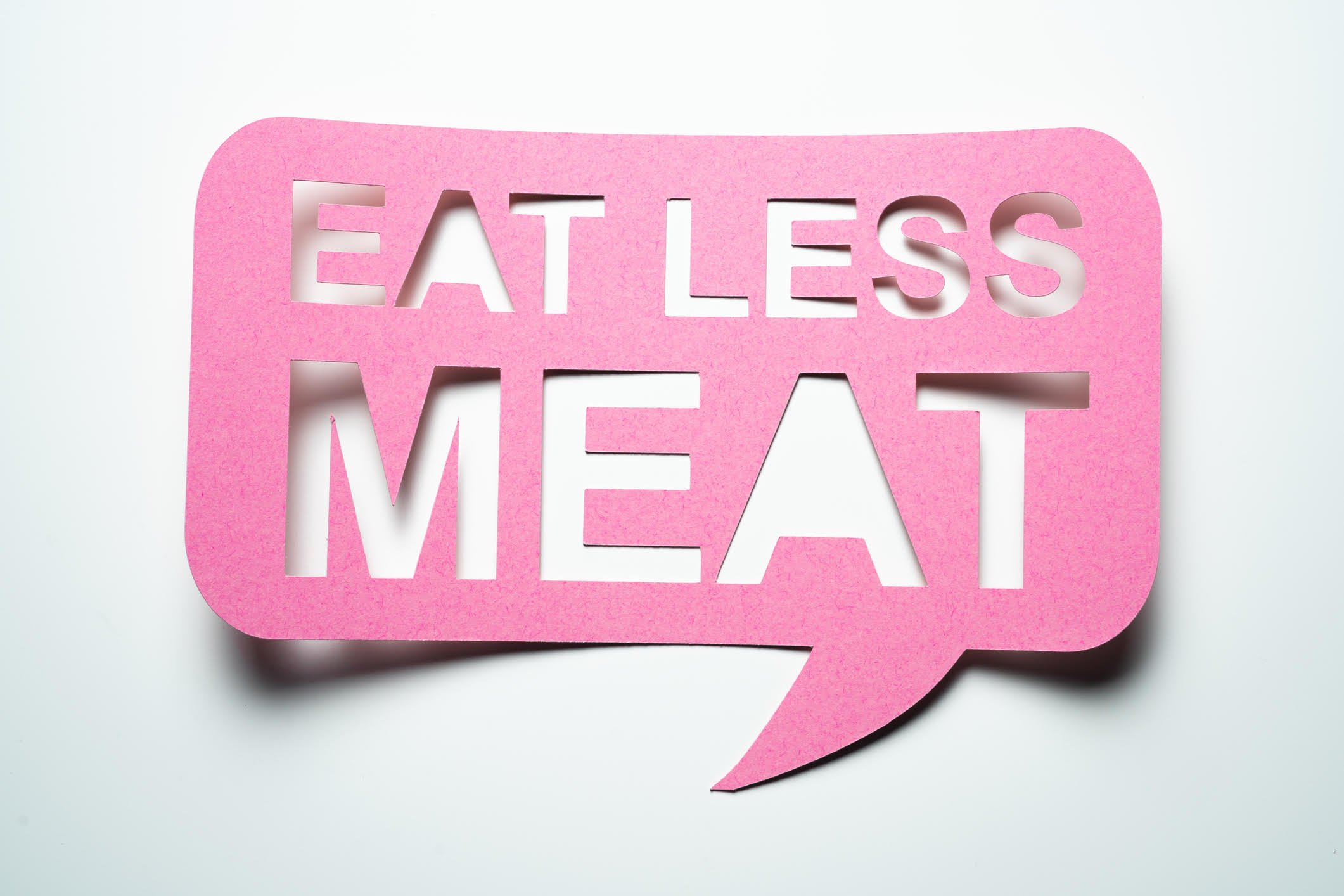Is “Less meat, better meat” a threat to food justice?
By Diana Rodgers, RD, Executive Director, Global Food Justice Alliance
The Global Food Justice Alliance advocates for the right of all people to choose nutrient-dense foods such as meat, milk, and eggs, which are critical for nutritious, environmentally sustainable, and equitable food systems that can sustain both human life and the planet.
“It betrays a great deal of entitlement to insist that balanced vegan diets are accessible, achievable, or desirable for children who most need food security and food justice”
Plant-based proteins are being promoted as healthier, better for the environment, and more ethical to eat than meat. Is this always the case? Must all people eat less meat for an equitable and just food system? Or, could shaming people for eating meat be considered elitist?
Animal-source foods like meat, dairy, and eggs are uniquely healthy. Meat is a great source of complete protein, healthy fats, and essential micronutrients difficult to absorb or not found in plant-sourced foods. This is especially true for women of child bearing age and children, who are suffering from nutrient deficiencies like anemia at an alarmingly high rate.
There is no evidence that removing meat from one’s diet results in better health outcomes. In fact, vegan and vegetarian diets result in nutrient deficiencies that may have dire consequences, especially for the growth and development of children. Only one randomized controlled trial (RCT) - the gold standard in scientific evidence - has been conducted to examine the effect of including meat versus limiting meat in kids’ diets. The study found that schools which included additional meat in the diets of food insecure children resulted in improved growth, cognitive, and behavioral outcomes compared to kids who received no additional food, those who were given more calories, or kids who received only extra milk.
In contrast, studies used to justify limiting or eliminating meat are based on heavily biased and flawed observational research, which cannot prove cause.
While the American and British dietetic organizations say children can consume “properly planned” vegan diets, other countries, like Germany and Switzerland, warn against vegan diets for pregnant women, infants, children, and adolescents because of the dramatically increased risk of nutrient deficiencies.
It betrays a great deal of entitlement to insist that balanced vegan diets are accessible, achievable, or desirable for children who most need food security and food justice and that those same children should be subjected to judgment about supposedly “better” diets. Is it possible to construct a healthy meat-free diet for some? Yes, but it’s risky, requires supplements, access to a multitude of exotic ingredients, and a lot of time and education. In short, it’s a privilege and the reality is that “healthy” plant-based diets are inaccessible for the vast majority of humans across the globe.
Additionally, there is no scientific proof to suggest that grass-finished beef is significantly healthier than conventional grain-fed beef. In fact, the nutritional profile of grass-finished and grain-finished beef is essentially identical. A full review of all the available peer reviewed literature comparing grass-finished beef to typical beef demonstrates no evidence of less “hormones” or glyphosate or higher levels of antibiotic-resistant bacteria in typical beef versus grass-finished beef. And while some studies show a more favorable omega 3 to 6 ratio in grass-finished beef, the absolute amount of omega 3 fatty acids in beef is still quite small compared to what you can get from eating salmon.
Stating that people should only eat grass-finished beef is like a doctor recommending that their patient only eat organic produce. Most of us can agree that vegetables are healthy, even if they’re not 100% organic. If you can afford organic produce, that’s great. If you can’t, you should still eat vegetables.
The same should be said for meat - all meat is an excellent source of critical nutrients like vitamin B12, heme iron, and high quality, affordable protein.
But are we all eating “too much” meat? Shouldn’t we all just eat less meat? There’s no strong evidence that meat is the cause of heart disease, diabetes, or cancer and claiming that people should be eating less meat is unhelpful when beef consumption is already quite low - Americans only eat about 2 oz of beef per person per day. The general guidance is that between 10%-35% of your diet come from protein. On a 2,000 calorie a day diet, this means 100g of protein, which is far more than the amount found in 2 oz of beef.
What about the environmental argument that the production of plant-based proteins is better than beef? While there is a larger environmental case for the consumption of grass-finished beef, beef production’s impact on the greenhouse gas emissions, land use, water use, and feed efficiency are often misunderstood, and the benefits of sustainable livestock production underestimated. Grazing animals like cattle can actually improve ecosystem function – something plant-based meat alternatives will never do. In fact, because of the environmental benefits that ranching has on land, one study found that the ecosystem services per beef cow to be approximately $1,045.
But feedlot finished cattle are “bad” for the environment, so we should all only eat grass-finished beef, right? The truth is that all cattle start on grass, which can benefit the land as stated above. When an animal is finished at a feedlot, the time spent there is only the last 3-4 months of the animal’s life. While on a feedlot, in addition to corn, these animals are consuming non-edible “food leftovers” like the spent grains from the alcohol industry or corn husks from the ethanol industry - things that would sit in a compost pile emitting methane whether or not we converted them into protein via the digestive system of a belching ruminant. The actual grain consumption per pound of edible beef is approximately 2.5:1, meaning it takes 2.5lbs of corn to produce 1lb of beef. From a nutrition standpoint, this is a net win for our food system because of the protein and nutrient “upcycling” cattle can do with nutrient poor and inedible foods.
“Less meat, better meat” also assumes that plant-sourced proteins are environmentally superior. The reality is that ultra-processed products like Beyond Burgers and Impossible Burgers are the result of chemically-dependent, monocrop agriculture and are usually far more expensive per pound and less nutritious than beef. Beans and rice are a less processed alternative but they are also commonly farmed in destructive ways, are approximately four times the calories for the same amount of protein as beef, and still can’t compare in vitamins and minerals to animal-sourced protein.
The biggest difference between grain-finished and grass-finished meat is that the latter is considerably more expensive and harder to access for a large part of the population. If you can afford and access grass-finished meat - and that is better aligned with your values - that’s great. But promoting “less meat, better meat”, or the idea that only 100% grass-fed meat is acceptable, robs people who can’t access this of nourishing food that forms part of a healthy diet.
It’s time that we acknowledge that the idea that we should be eating “less meat, better meat” is illogical, inaccurate and elitist. Buy the best meat you can afford but do not tell others they’re wrong for choosing to eat meat. We can all try to shift the food system to a more regenerative one, but we should not do this at the food equity expense of those who lack privilege.
GFJA supports all efforts to improve our food system overall, including fewer chemical inputs, providing the best animal care, treating workers well, regenerating the land, and producing healthy food.
Knowing your local farmer, buying hundreds of dollars of high-end meat, buying only organic food - these are privileges and personal choices some people can make. But we should not make food policies or advance food-shaming narratives that drive people away from affordable, nutritious, high protein, low calorie, micro-nutrient dense real food like beef.
Not only are we seeing anti-meat messaging from pro-vegan and vegetarian agendas, but also from advocates of grass-fed meat who claim that the only way forward is “less meat, better meat”.
The “Less meat, better meat” concept is not only based on inaccurate nutritional science, but it is elitist. Shaming those who cannot access or afford grass-fed meat will have substantial negative consequences to the health of many, and disproportionately impact populations who are most at risk of nutrition deficiencies.


